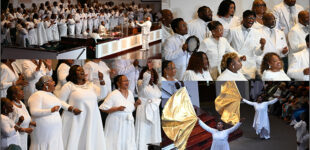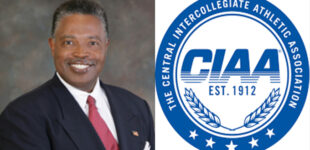Local basketball coaches share what they wished parents knew (part 3)

By KP Brabham
This informative article has been split into several parts to avoid losing the valuable insight provided by our local coaches. Part 2 ran in last week’s Chronicle.
Selecting a school that’s the best fit has proven itself to be extremely challenging for parents, especially with the plethora of options countywide. Besides the traditional public, public magnet, and private schools, we also have in the state of North Carolina 204 public charter schools serving approximately 130,485 students. Five of those charter schools are within the Winston-Salem/Forsyth County School (WS/FCS) district.
Charter schools are tuition-free and independent from the local school districts, including exclusions from some rules, regulations, and statutes that apply to traditional public schools. Charter schools receive state and local funding and federal funding if applicable.
According to Public Schools First NC, in the 2021 legislative session, $10.6 billion was allocated for public education with $848 million allotted for charter schools. Because charter schools receive those funds, students participate in the N.C. accountability program by taking the end-of-grade (EOG) and end-of-course (ECO) tests. The data from the tests are recorded on the N.C. Schools Report Cards, which is not a requirement for private schools.
Also, funding is available to allow for free breakfast and lunch for students and professional development for the teachers. On the social side of charter schools, coaches have more flexibility in athletics, like that of private schools.
COACH ANDRE GOULD SPEAKS OUT
An in-depth conversation with Coach Andre Gould at Quality Education Academy (QEA), a public charter school located off Lansing Drive in Winston-Salem, added some goals for parents to consider.
Coach Gould, in his second year as boys program director and the head varsity boys coach at QEA, brought six years as a volunteer girls coach before moving into the boys program from RJ Reynolds High School, 15 years from Winston Salem Preparatory Academy, and ten years from the Kappa Magic, Carolina Hornets, NC Select, Boo Williams, and Team Winston (including organization director) amateur athletic union (AAU) organizations.
Coach Gould begins with “‘Who works the hardest reaps the greatest rewards,’ but at the same time, parents and players have to be prepared for it to go either way. There’s no guarantee if you try out that you’re going to make a team.”
It’s important for “kids to make sure they’ve done everything they can do to prepare himself to impress coach enough for coach to say, ‘I want him to be a part of the team’ and it’s not always about the most talented player. Sometimes it’s about doing all those things other people don’t want to do.” Coach Gould added a collegiate level example that players go in thinking they’ll score because they scored 25 points in high school, but that’s not what that college coach wants. [Players] have to find out about the particular school you’re at, what kind of coach you’re dealing with, what are some of the things a coach likes.”
BE PREPARED FOR THE UNEXPECTED
Coach Gould added a different perspective to the fold by suggesting players study their coach or program they’re potentially going to have and be a part of “to find out if that fits what you’ve prepared yourself for.” Coach Gould went on to ask parents to be “choicey” by making sure everything aligns with the style of player parents have.
As we heard from previous coaches, the high school schedule can be tough, especially with all the unexpected changes living through the coronavirus pandemic. Coach Gould asks parents to have flexibility. To parents, he explained that “You have a window that most people know when the season is. If you know your season starts the middle of October or early November and ends the second week of March – if they make it to the state championship – we ask parents to make that commitment during that time frame. It’s hard on both ends. You have to have a lot of patience right now, a lot of flexibility with the canceling and making up game dates, because we’re going through a pandemic that requires constant adjustment. We’re asking this of parents, players, and coaches.
Coach Gould explained his expectations are the same as it would be if the player was in college. He wasn’t hesitant in saying, “If you want to be ready for high school, then I’m not the guy to coach you. If you want to be prepared for college, those are the things that happen in college basketball – travel, changes – you have to have a commitment to it, to understand the world is different, and [players] must be locked in to their gifted-self, what you’re feeding your gift, and how we’re going to play the game. Practice, too, may be an odd schedule or at odd times.”
COACHES ARE ALWAYS SCOUTING
When asked about coaches scouting and evaluating players in middle and high school games, as well as on the AAU circuit to build their program, Gould was very transparent when saying, “Any coach would be lying if they told you they don’t have potential players they like to look at, they want to see when they go out to different games. Sometimes it’s by word of mouth, sometimes it’s reputation, and players come to you themselves. You [coaches] are always scouting your area.”
Coach Gould looks for the talent he believes matches up [with his program] and with the services that can be provided as a coach, a program, and in an educational institution. He says, “I’m not for everybody and everybody is not for me. But sometimes you might get a player for your program or players and realize it doesn’t work. Evolving, flexibility, shifting, and other things of that nature make you have to scout to see who you like. Parents interview you [coaches] and sometimes you’re being interviewed and don’t even know it. Coaches are always on display as a coach, a program, and as an educational institution, so it’s important to put your best foot forward. Cards fall where they may, but God’s going to decide who has who.”
AAU VS. HIGH SCHOOL COACHING
Coach Gould discussed how he views his AAU coaching experience in comparison to his high school program. He explained the coaching experience for him has been the same because he looks at it as an opportunity to always work on your craft. He believed there is no one thing that defines him, he’s still working on his craft today. “There’s no difference from the coaching aspect to me, I still require the same today as when I coached AAU. I meshed [the experiences] together and did the same things as I try to perfect my craft. There are differences in rules and regulations you have to follow when in a high school setting versus the AAU setting. In the AAU setting, you can fly players in from all over the country. In high school you have your district, for example, you have to adhere to. And recruitment is much different.” Coach Gould went on to add that, “honestly travel ball offers 10 times the exposure that high school basketball offers. I come from both worlds, and I try to mesh both worlds together” to benefit the players’ future for college.
The AAU circuit is known for the means of how players are recruited on the high school and collegiate level. When I asked Coach Gould for his take on recruiting in the traditional high school setting, he immediately responded, “I don’t see anything wrong with it. For some reason the word ‘recruitment’ has become a dirty term for people who can’t provide a service for players. I don’t have a problem with people recruiting band members or swimmers, or teachers being recruited after putting in applications. It could be three or four schools trying to get that one teacher. It’s the same to me. I don’t deem that or find that to be a negative, but we have made that from an athletic standpoint. There are more things we offer athletes besides playing for a winning program. Some powers at be made it a dirty word and they’re only concentrating on the athletes and that bothers me because there’s a lot more recruiting going on besides athletically, but it’s always at the forefront. To be honest, it involves a lot of Black, African American athletes that we talk about being recruited. No one has ownership of [your] kids. Our kids should be able to go, just like teachers or principals who aren’t bound to stay at a school.”
Coach Gould elaborated by adding that a principal’s leadership skills are taken into consideration all the time and shifted as wanted or needed without problems that may be a better situation than the current one. Coach Gould believes educators are presented with better situations every day and that our kids should be allowed the same opportunity to be offered or at least hear what other schools have to offer.
COMMUNICATION WITH PARENTS IS KEY
Coach Gould wants parents to know his staff will always try to work hand-in-hand as far as molding young men and women in the programs at QEA, as his goal is to work closely with parents as the boys and girls transition into young men and women. He emphasized his presence and importance of working with parents through the transition and to make sure the educational component is there. Coach Gould stressed that he doesn’t take time to join families at the dinner table to advise what time kids should be in bed; therefore, he doesn’t expect parents to come to tell him how to coach. Gould did add he will always listen to parents’ advice about their particular student-athlete without a problem; he feels like communication is the key.
“But that doesn’t mean everyone will always like what you say. That’s how it works. When you are running a program, you’re the lead or the head, you always have to be willing to listen to what people have to say. That doesn’t mean you change who you are or change what you’re going to do. Sometimes someone may give you a piece of advice you didn’t know, and it may work. It has happened to me before. So, I try to create a big family atmosphere with an open-door policy and parents can come to talk to me. But that doesn’t mean I change because of what a parent wants done.”
Of course, parents are their kid’s number one fan. Coach Gould stated, “Parents will always have a biased opinion about what they think by saying, ‘I’m going to tell my son the truth.’ Sometimes situations don’t work. As parents and coaches, as the adults, we have to come together as adults, but many times that doesn’t happen because feelings get hurt or someone is offended because the player leaves and we stop being adults. Again, I’ve had kids and families leave my program and I still love them just as much as I would have if they stayed in my program the whole time.”
End of Part 3. Read Part 4 of this series in next week’s Chronicle














